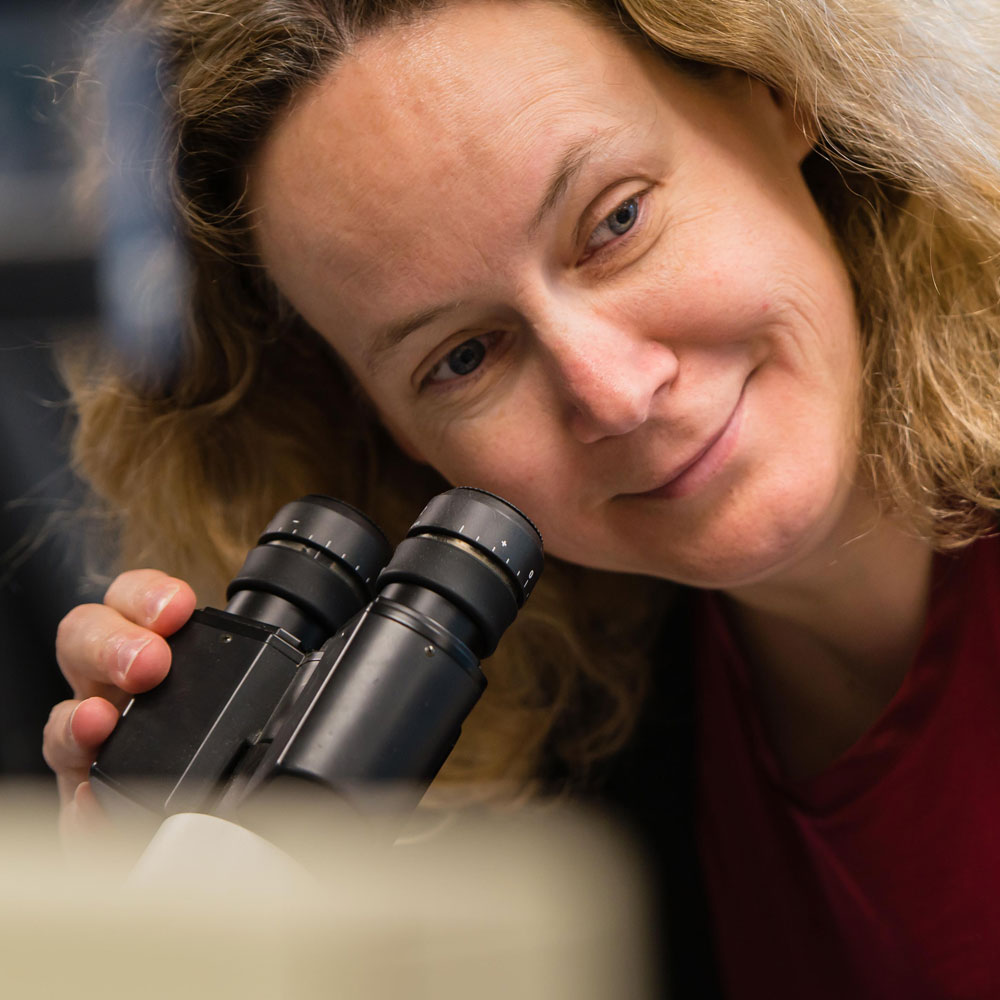Research Themes
Accelerator Physics & Dosimetry
Investigating particle and photon beams and their mutual interactions with the goal of developing novel accelerators or radiation devices.
Algorithm Design & Analysis
Designing algorithms to solve different types of problems in the branch of computer science and information technology.
Artificial Intelligence
Creating intelligent machines that work and react like humans. Some of the activities computers with artificial intelligence are designed for include: speech recognition and learning.
Computing Science
Examining the theory, experimentation, and engineering that form the basis for the design and use of computers. This research studies algorithms that process, store, and communicate digital information.
Data Science
Using scientific methods, processes, algorithms and systems to extract knowledge and insights from data in various forms, both structured and unstructured, similar to data mining.
High Precision Radiotherapy
Evaluating high precision methods in radiation oncology to enable an optimal and fast translation of these methods into clinical application.
Human-Computer Interaction
Researching the design and use of computer technology, focused on the interfaces between people and computers. Researchers in the field of HCI both observe the ways in which humans interact with computers and design technologies that let humans interact with computers in novel ways.
Medical Imaging
Creating visual representations of the interior of a body for clinical analysis and medical intervention, as well as visual representation of the function of some organs or tissues (physiology).
Number Theory & Algebra
Using the techniques of abstract algebra to study the integers, rational numbers, and their generalizations.
Optimization
Finding a minimum (or a maximum) of a function subject to constraints. Optimization problems are of fundamental importance in mathematics, computer science, engineering and related areas. In applications, solutions of optimization problems may correspond to optimal scheduling assignments, optimal treatment plans for radiation therapy, and optimal investment strategies.
Social Network Models
Investigating social structures through the use of networks and graph theory. This research characterizes networked structures in terms of nodes (individual actors, people, or things within the network) and the ties, edges, or links (relationships or interactions) that connect them.
Statistics & Probability
Exploring the study of chance and how data is handled using different analysis techniques and collection methods.
CENTRES, INSTITUTES, AND LABS
Our centres, institutes and labs form the foundation of our research efforts, where our faculty work with many community and industry partners to advance knowledge and practice in the field of quantitative sciences and provide hands-on research and learning opportunities for students.
UBC’s Okanagan campus is now an official site of the Banff International Research Station for Mathematical Innovation and Discovery (BIRS). Several BIRS events will be hosted on the UBC campus in Kelowna, primarily in the summer months, starting in 2021. Ten research workshops in a variety of areas in mathematics, computer science, statistics and theoretical physics are being scheduled into the period from May through August. Learn more.
The medical physics laboratory is a multi-user facility with research interests in radiation oncology medical physics. Research programs include: understanding normal and tumour tissue response to radiation; determining predictors of radiation sensitivity and injury; and the development of 3D radiation dosimetry systems. Learn more.
OCANA CoLab is part of the Centre for Optimization, Convex Analysis and Nonsmooth Analysis (COCANA), which performs fundamental research in convex and nonsmooth analysis and transfers the results to industry by solving practical industrial problems with a focus on commercial applications. COCANA researchers are mathematicians, computer scientists and engineers who apply state-of-the-art optimization techniques to solve real-life problems and provide our industrial partners an edge over their competition. OCANA CoLab allows research collaboration on-site or remotely. We routinely host seminars with researchers participating from the Pacific Northwest and abroad (e.g. Newcastle, Australia). Learn more.
CA² Lab is part of the Centre for Optimization, Convex Analysis and Nonsmooth Analysis (COCANA), which performs fundamental research in convex and nonsmooth analysis and transfers the results to industry by solving practical industrial problems with a focus on commercial applications. COCANA researchers are mathematicians, computer scientists and engineers who apply state-of-the-art optimization techniques to solve real-life problems and provide our industrial partners an edge over their competition. We leverage industry-sponsored funding with grants from the Natural Sciences and Engineering Research Council and MITACS, thereby more than doubling our partners’ investment in research. We have many man-years of experience in optimization and operations research applied to engineering and health science and are always looking for new partners. Learn more.
The database research Group led by Ramon Lawrence studies how to store, find, and organize data efficiently. Current projects include databases for environmental monitoring and sensor networks, database tuning and optimization, and databases for embedded systems, cell phones, and flash drives. The database research group focuses on all practical applications of data management.
The Distributed Database Laboratory performs applied research into data management challenges for relational, NoSQL, and BigData systems. Researchers and developers are engaged in projects on the small-scale sensor and embedded databases and large-scale BigData projects for the Industrial Internet. Our expertise includes software engineering, system development, and consulting. We have worked with Fortune 500 companies, including GE, and our research group specializes in database integration, implementation design, and software development. Learn more.
The Okanagan Institute for Biodiversity, Resilience, and Ecosystem Services (BRAES) is a group of over 30 faculty members and their graduate students working in ecology, biodiversity and conservation, and environmental sustainability on UBC’s Okanagan Campus. BRAES’ special strength is its multidisciplinary focus, with members from departments of biology, mathematics and statistics, literary and cultural studies, earth and environmental sciences, physical geography, economics and creative arts. Learn more.
The Applied Micro and Nanosystems Facility (AMNF) is a class-100 micro/nanofabrication facility at UBC’s Okanagan campus. The facility has microelectromechanical systems (MEMS) fabrication capabilities for thin-film deposition, photolithography, chemical processing, electronic prototyping and laser micromilling. The multi-user facility supports numerous areas of applied sciences. Learn more.
Okanagan Digital Microfluidics Laboratory at University of British Columbia conducts research on control, fabrication and modeling of Digital Microfluidic biochips. Digital microfluidic devices provide a new technology platform for controlled motion of small fluid volumes.
Although wildfire is a natural and essential characteristic of forestry ecology, current climate and migration patterns appear to increase fire risk within the wildland-urban interface. Fire managers across Canada have grappled with strategic resource management issues related to suppressing and mitigating wildfires for decades. In recent years, they have turned to statistical modellers to assess the uncertainties and risks to both human life and property.
With improved predictive models of fire behaviour, provincial fire management agencies can hope to allocate scarce fire suppression resources more efficiently. The Data Visualization Laboratory contains the computing infrastructure needed to enable Data Scientists at UBC Okanagan to develop static and mobile software tools for use by fire managers in real time and for long-term strategic planning. While fire science is a significant priority for the lab, as a Data Science facility, it is also set up to handle data visualization and modelling problems arising in other areas, most notably, quality assurance applications arising in computational medical physics through collaborations with the BC Cancer Agency. Learn more.

Experts
Search for Irving K. Barber Faculty of Science faculty members with the right expertise.
Opportunities for Undergraduates
The Department of Computer Science, Mathematics, Physics and Statistics offers many opportunities for undergraduate students to gain valuable research experience. You can participate in research through Directed Studies and/or Honours opportunities. Or consider a Capstone Project, where you can work with a team of students to develop software for an actual client. Explore your options and apply below.
The position: Carry out your own research project under the supervision of a faculty member. Opportunities include, but are not limited to, supervised reading, participation in a seminar, and one or more programming projects. With different topics, this course may be taken twice for credit.
You can earn three or six credits for the project, depending upon if they register for a one-term or two-term option.
Prerequisites: Third-year standing and the permission of the department head.
Directed Studies Application Forms
The opportunity: Capstone projects allow students in computer science to gain real-world experience developing software for an actual client. Students must produce a comprehensive report and deliver a formal presentation.
Prerequisites: Refer to the Academic Calendar for the most up-to-date prerequisites specific to computer science capstone projects.
The position: Students will undertake a research project as agreed upon by the student, supervising faculty member, and department head. A written thesis and a public presentation (poster or seminar) are required.
You can earn three or six credits for the project, depending upon if they register for a one-term or two-term option.
Prerequisites: Fourth-year standing; admission to the BA or BSc Computer Science Honours Program; and permission of the department head.
Honours Thesis Application Forms
Awards for Undergraduates
The Undergraduate Research Awards (URA) and the NSERC Undergraduate Student Research Awards (USRA) provide exceptional research experiences for students at UBC’s Okanagan campus.
The purpose of the awards is to encourage undergraduate students to pursue innovative and original research as part of their learning experience.
Our Partners and Donors
Together, we are making a difference, locally and around the world. Our partners and donors allow us to carry out our mission of helping the community, making advancements in research, and providing quality education in the field of computer science, mathematics, physics and statistics.
If you are interested in becoming a partner or donor, we would love to hear from you.




